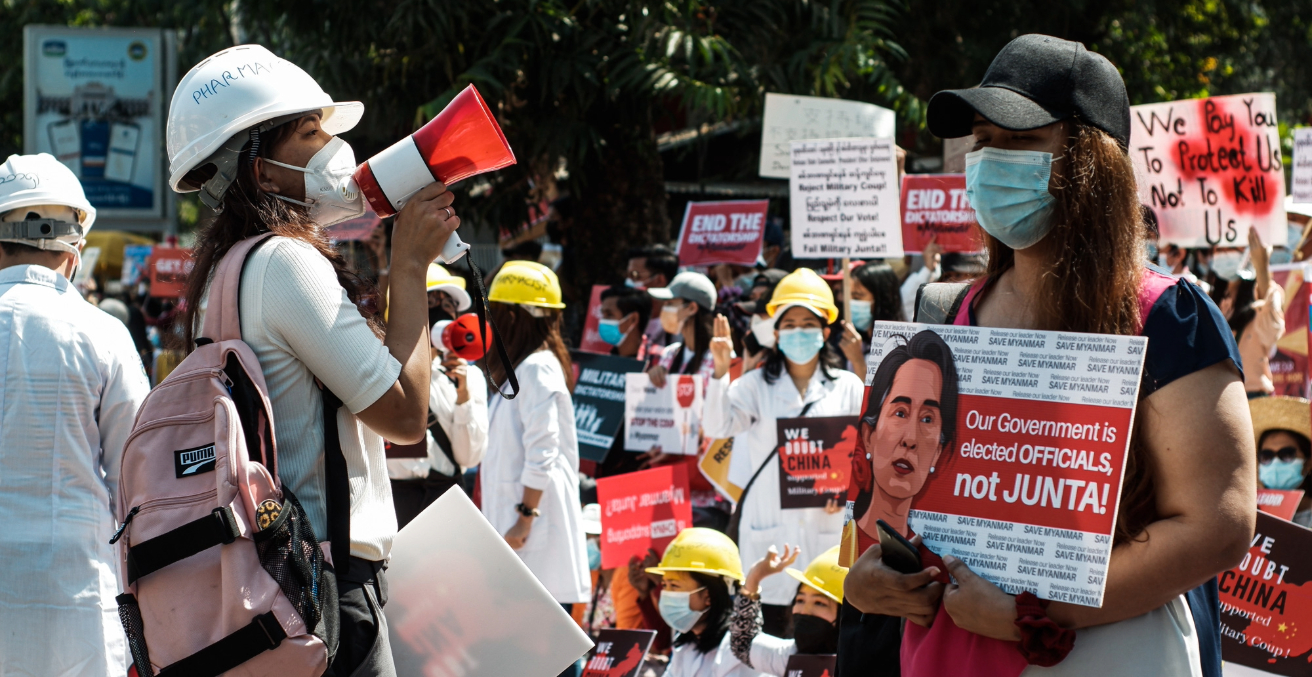On 1 November 2022, Israelis will go to the polls for the fifth time in less than four years. But why the ongoing political stalemate, and is there any hope for a better outcome this time around?
On 30 June, Prime Minister Naftali Bennett instigated an impromptu dissolution of Israel’s Parliament, the Knesset, and in doing so has triggered a new round of elections. Set for 1 November 2022, these will be Israel’s fifth elections in less than four years, and further evidence of the political gridlock the country has been in since 2019. To many outside observers, the repeated failures to form a stable national government have become perplexing. Why the ongoing political stalemate? What, if anything, has changed since the last elections? The answers to these questions are as complex as they are controversial.
How We Got Here
The breaking point resulted from a trap set for the government by the country’s right-wing opposition. Putting off its nationalist tenets, the opposition blocked a routine extension of the regulations which apply Israeli laws to Jewish settlers in the occupied West bank. Unable to secure support from Palestinian Members of Knesset (MKs) in the coalition for the discriminatory legal system, Bennett could not pass the motion. Fearing a second failure and ensuing damaging repercussions, he chose to fall on his sword rather than hand the credit for the toppling of the government to the leader of the opposition, former prime minister Benyamin (Bibi) Netanyahu.
Netanyahu is presently on trial for charges of corruption, but so far has refused to stand down from his leadership role. To many, his main objective in seeking to return to power is to thwart the legal proceedings against him and avoid a jail sentence. Indeed, current Israeli polls suggest a possible comeback for a Netanyahu government, as his Likud party is all but assured to gain the most seats in the next parliament. In Israel, the leader of the largest party has a mandate to try to form the government.
Where is the Israeli-Palestinian Conflict in All of This?
How relevant has the Palestinian issue been to this electoral impasse? The question was raised recently in an Al-Jazeera Inside Story panel discussion. For two of the three participating panellists, the conflict with the Palestinians had been either irrelevant or not very influential. According to Gideon Rahat, professor of political science in the Hebrew University of Jerusalem, the main question on the ballot in all four past elections had been about Netanyahu’s fitness for prime ministership. Israel’s parliament has been dominated by a strong majority of right-wing MKs, he argued, and if the main divisive issue had been that of the Palestinians, then Israel would have already had a stable functioning right-wing government.
The facts are indeed difficult to dispute. Bennett’s eight-parties’ governing coalition was made up of right-wing, centrist, left-wing, and for the first time in Israel’s history, an Israeli-Palestinian party (the United Arab List, or R’aam) led by Mansour Abbas. This fragile coalition was formed and held together predominantly by a shared dislike of Netanyahu, including by those from the right.
However, that was only part of the story. Given the inevitable ideological disparities within the coalition, the best way to keep the government’s ship afloat had been to try to steer clear of all major controversies, most acutely in relation to the Palestinian issue. On occasions, when this had become impossible, Bennett’s strategy was to try to maintain a spirit of concessions within the coalition. His success in sustaining a measure of discipline during his government’s first year was a surprise for many in Israel, but sooner or later his luck had to run out. And it did.
What is Likely to Happen Come November?
Ahead of Israel’s November elections, the country’s political future remains highly volatile and may hinge on small shifts and counter-shifts across a number of opposing camps. On the one hand, the Israeli Right has become by far the strongest, both in Parliament and amongst the Jewish-majority populace. Any government to be formed after the upcoming elections will be dominated therefore by right-wing worldviews and nationalist agendas, moderate or extreme.
In Israel’s proportional representation system, voters cast their ballots for a party and not a person. The percentage of votes received is then translated into the percentage of parliamentary seats the party will receive in the 120-seat Knesset. Israel’s political map is made up today of two primary groupings. The largest consists of the Likud right-wing party, in coalition with the country’s three Jewish religious parties, including the radical far-right Religious Zionism party. This bloc is led by Netanyahu and, based on recent polls, may be able to win the minimum 61 seats required for forming the next government. A 61-member coalition will be highly unstable however, and Netanyahu is already at work attempting to entice some of the right-wing politicians in the “Just-Not-Bibi” camp to return to his side.
The second camp includes two distinctly smaller groupings: a right-centre-left-wing bloc led by the current prime minister and founder of the Yesh Atid party, centrist Yair Lapid; and a recently formed two parties’ right-centre bloc, led by Minister of Defence and leader of the Blue and White alliance Benny Gantz. These blocs share the goal of keeping Netanyahu out of power, but without active support from the Palestinian parties in the Knesset, they will lack the numbers to reach a majority.
Israel’s Palestinian citizenry make up slightly more than 20 percent of the overall population, but in the past two decades they have often underutilised their voting rights compared to the national turnout. This is due to a lack of trust in the system and in their representatives’ abilities to influence political processes. The combined electoral weight of Israel’s two Palestinian parties is estimated today at only ten seats, considerably less than their share of Israel’s population. Back in the 2020 elections, a Joint List formed by all Palestinian parties had won an unprecedented 15 seats, only to split and crash later at the 2021 polls. Notably, some Zionist parties, especially on the left, tend to compete for the Palestinian vote by placing Palestinian candidates in prominent locations in their electoral lists.
The United Arab List’s decision last year to join Naftali Bennett’s government had revealed significant ideological challenges which are bound to come up for any similar coalition in the future. However, it also affirmed the potential for Israel’s Palestinian parties to play a more significant role as power brokers in the country’s politics. Their partisan agendas are varied and consist of much more than the fight to end Israel’s occupation of their brethren in the West Bank and Gaza. Inequalities in legislation and in municipal funding allocation, discriminatory housing policies, youth unemployment, and increasing violence within Israel’s Palestinian communities are no less salient and may well be tackled more effectively from inside than from outside government. Should a return to a joint list result once again in higher Palestinian turnout, this could undermine Netanyahu’s prospects of forming the next government and open the door for the possibility of other negotiated outcomes. However, the challenges facing such an occurrence are considerable and the prospects, at least for now, are considered to be low.
Many shifts and counter-shifts could come about on the way to the November elections, from continued divisiveness and polarisation to more pragmatic advances towards political compromises. Unfortunately, many forces could derail efforts toward the latter option, from both sides of the fence. Once again, Israel and its people may be carried forward by the events with little ability to control their outcomes.
Dr Eyal Mayroz is a Senior Lecturer on human rights and international peace and security in the Department of Sociology and Social Policy at the University of Sydney. Formerly a counterterrorism specialist (Captain, retired), he is the author of Reluctant Interveners: America’s Failed Responses to Genocide from Bosnia to Darfur, which was named one of Choice magazine’s outstanding academic titles of 2020.
This article is published under a Creative Commons Licence and may be republished with attribution.




